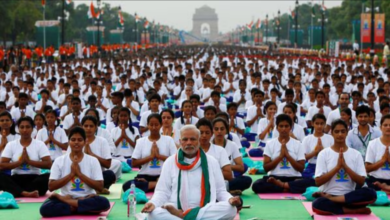Online video games: What if India did what China did?
Online video games: What if India did what China did?

Before Corona, parents could snatch the phone if the children were engaged in mobile phones for a long time. Now there is a situation where a child has to get a separate phone. Smartphones are as useful as they are dangerous. After giving a phone to a child for an online class, there is no guarantee that he will use it for the class only.
As many online video games can be tied to motors in a way, it is not hard to think about how it can affect children.
Because of this, last week the Chinese government severely restricted the use of online video games for children under 18 and set up effective enforcement.
While such measures may not seem drastic to many parents considering the side effects of mobile games, many would advocate such measures even in India. But only bans or restrictions are the solution right? The benefits of video games are hard to fathom, but they certainly are! Let us examine both aspects.
China’s government department, the National Press and Publication Administration, announced new rules about online video games last week. According to these rules, children under the age of 18 in China can now play online video games for a total of 3 hours a week!
Chinese authorities believe that Chinese children and youth are becoming addicted to video games, and various social evils are spreading in its wake. The Chinese government believes that online video games are affecting children’s studies and taking them away from family relationships and responsibilities (we’re feeling it too).
According to the new rule, children under the age of 18 in China are completely banned from playing online video games from Monday to Thursday of the week. On the remaining three days of the week and on public holidays, children can play video games only from 8pm to 9pm, i.e. one hour a day, for a total of three hours a week!
This is different from the complete ban on apps like ‘TikTok’ in India. An outright ban can lead to the app itself being removed from the Play Store, but online video games are not outright banned in China, only limited to children’s use. Because of this, we may think that the implementation of this ban will only be on paper, but China has a strict law enforcement system.
The Chinese government has created a digital ‘anti-addiction system’. All online video games companies available to Chinese people are required to connect to this system. After that, every user who wants to play online video games will have to register in the system with his real name and will have to provide the evidence announced by the government to prove his identity.
The Chinese government has been angry with technology companies for a long time now. The Chinese government believes that these companies are eroding moral values for the sake of profit. China’s state-run press is calling online games a ‘psychic opiate’. China’s President Xi Jinping has also recently started to decry the video game habit among the youth. Chinese authorities then had no choice but to take action against online video games.
Video games are considered publications in China and are subject to censorship rules before being sold/used online in China. In 2018, the Chinese government stopped licensing online video games for 9 months. Then in 2019, the government banned children under 18 from playing video games from 10 pm to 8 am and during the day only one and a half hours of online video games could be played. Apart from restrictions on gaming, teenagers aged 16 to 18 were also banned from spending more than Rs 4,000 on video games during a month.
China’s online video games industry is one of the world’s leading. China’s tech giants have also invested heavily in other gaming companies around the world. All of these companies are currently saying that the share of revenue from children is very small, but this new ban is likely to have a wider impact on China’s gaming industry.
We usually don’t go beyond shooting or racing games on smartphones, but if you have come across a game like ‘SimCity’ (SimCity BuildIt, ELECTRONIC ARTS), you will know that in such a game, the player is given a precise land and then different things. Considering, he has to build a whole city on that piece of land. This game can plant the seeds of town planning and resource management in children. Here too, the point is to understand and think about different situations and take action accordingly!
A child playing digital games learns to use a map to move through the virtual world of the game, learns to formulate and execute his own strategy according to the situation, learns to move quickly while maintaining accuracy, predicts the current situation, how the situation will change now and what he will do then. He learns by understanding and thinking that he has to do. Video games also teach children to take risks as needed.
Studies show that children who play video games have a better ability to extract information from visuals, so if they are aided by visuals in their studies, they learn their subject faster than other children. Before playing any game, a child must read the instructions on how to play the game, understand the whole story of the game.
Thus, it cannot be denied that video games have played a major role in making today’s smart generation smart. It is very important to see that only prudence is maintained (it is not maintained, it is the Ramayana!). Like the Chinese government, instead of our government or parents being the watchdogs of children, if they play as many games with them as possible, the children will benefit more than the harm from the games.




